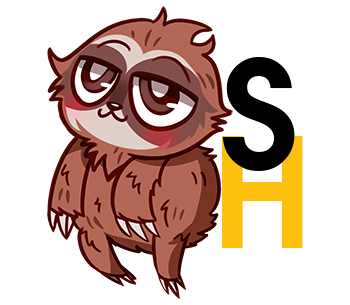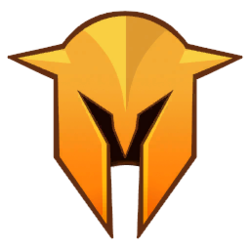Ishtar pushed through the dripping undergrowth, her bow in hand. Broken stones rose around her – the remnants of some forgotten kingdom. She paused, listening. She could hear the pattering of the rain and beneath it…something else. Movement. She readied an arrow and turned, keen gaze scanning the greenery. The movement ceased.
She narrowed her eyes and waited. While she wasn’t known for her patience, she was an experienced huntress. And sometimes a hunter simply had to wait for their prey to reveal themselves. Her arrow crackled and hissed as the rain ran along its glowing length. But she didn’t lower it, or turn away. Her pursuer her was still there. Waiting for her attentions to wander. It was clever, whatever it was.
Then, Tiamat’s monsters had always been clever. That was why they were so dangerous. That was why Tiamat was so dangerous. One of the reasons, at least. The last time Tiamat had been allowed to run loose, she had created an army of monsters; creatures so cunning and foul that they were a match for any god.
Ishtar smiled. Well, any god but her.
Almost as if the thought had been a provocation, Tiamat’s watch-dog finally made its move. It burst out of the undergrowth, all teeth and scales. She sent her arrow flying and the monster fell into a silent heap at her feet. She looked down at it and gave it a nudge. It was the third such monster she had dispatched in as many days – all had been different in form, but the mark of Tiamat was upon them. They’d been circling her since she’d entered Tiamat’s dominion. Testing her, she suspected.
Idly, she wondered if Gilgamesh had sent her into a trap. If so, it was a badly organized one. As she’d departed Uruk, Gilgamesh had offered to accompany her. She’d turned him down. It wasn’t that she didn’t trust him; it was simply that she doubted he would be of any real use. He’d failed to defeat Tiamat once; there was no need to let him do so twice. She knew in her heart that the Babylonian pantheon should never have sent Gilgamesh to confront the dragon in the first place. Now they would all pay for that mistake, unless she could do what Gilgamesh could not.
Which, of course, she could. There was no doubt in her mind. Was she not Ishtar the conqueror? Ishtar, who had walked into the lands of the dead and emerged unscathed? Ishtar, who had humbled the very mountains? Ishtar, who saw what she wanted and took it, as only a god could. And what she wanted now was the secret behind whatever power had freed Tiamat and subsequently changed the world. And the world had changed in some way, though she could not say how or why.
For the gods, time was a river, one moment flowing into the next. Past, present and future were one and the same. But the course of a river could be altered; it could eddy and flow. It could grow stagnant, dry up or burst its banks. Time was the same.
Something, Ishtar knew, had altered the course of the river. Not by much, or to any great effect. Rather, the general shape of the river had changed in a thousand small ways. Suddenly, what had been and what would be were no longer the way she recalled. Not exactly. The thought didn’t particularly distress her, as such. But she wanted answers. Gilgamesh had convinced her that Tiamat had those, at least.
She paused. She could hear the sound of something heavy – several somethings, rather – racing towards her from all directions. She reached for another arrow and had it readied even as the first of the new arrivals burst from the trees and charged towards her with a thunderous snarl. It was a serpentine monstrosity, much like the one she’d just dispatched. Two more arrived, charging into view from her left and right, respectively.
An ambush, then. So be it. Laughing, she released her arrow at the first of the trio, knocking it to the ground in mid-leap. She ducked as the second leapt over her, and drove the end of her bow into the torso of the third, driving it backwards into a tree. The creature snarled and tried to come to grips with her, forcing her to drop her bow and step back. She snatched her blades from their sheathes and removed the monster’s head in a spurt of ichor. She was already turning, even as the body slumped to the ground.
The remaining creature circled her, hissing fiercely. Ishtar made a ‘come-hither’ gesture with one of her blades. The monster accepted her invitation, bounding towards her with a shrill snarl. Ishtar side-stepped its charge, her blades slicing out as it went past. The monster staggered on for a few clumsy steps before it finally succumbed to her attack, collapsing onto it’s face.
Ishtar scraped her blades together, cleansing them of reeking ichor. “I am becoming bored of playing with your pets, Tiamat,” she called out. She did not know if the dragon could hear her, but she thought it worth a go. “Is this the best you can do? I thought you more of a challenge than this.”
Ishtar looked up and smiled. Tiamat hovered above her on wings of silently shimmering lightning. She wondered how long the dragon had been there – had she watched as Ishtar dispatched her servants? If so, perhaps Gilgamesh was right and she had changed. The Tiamat of old would not have hesitated to dive into the fray. Where was the fury of the great salt sea, the roiling tempest of chaos? “You do not make it easy, old one. I have been wandering in this fetid jungle for three days now.”
“What is three days to an immortal?” Tiamat said dismissively. “I would have thought you would have learned some patience in the centuries since last we saw one another, granddaughter.”
“Patience has never been among my virtues,” Ishtar said. She sheathed her blades and put on a wide smile. “Why do you hover so? Are you afraid? Come down, grandmother; come down and speak with me as an equal.”
She was hoping to provoke Tiamat into some rash action, but instead, the dragon simply asked, “What do you want, granddaughter?”
“I want to know why you are not slumbering where we left you, grandmother,” Ishtar said, “How did you come to be back in the world?”
“Fate. Accident. What does it matter?”
“It matters a great deal to us, grandmother.”
“Us?” Tiamat paused. “And who is us, child? Who sent you here? The same ones who sent the king of Uruk to challenge me, perhaps?”
Ishtar paused. “Yes.”
Tiamat grunted, “That was badly done, you know. He had no chance against me and yet you sent him away.”
“We learned that trick from you, grandmother,” Ishtar said, unable to restrain herself.
“Or maybe you feared to face me, as you once did.” Tiamat waved aside Ishtar’s protest. “It doesn’t matter, in any event. I hold no grudges for past mistakes.”
“Past – you tried to eat us,” Ishtar snapped, in disbelief.
“The way I recall it, you tried to destroy me first,” Tiamat countered, lazily. “But…bygones, as they say.”
“Who says?”
“Other gods. I have spoken to many, since I was freed. Some of them are quite friendly. Others less so. But all of them far more interesting conversationalists than the Babylonians.” Tiamat reared up and examined her claws, as if searching for some imperfection. Ishtar felt a flash of anger at being dismissed so easily.
“Weak gods talk,” she snapped. “Strong gods act.” A part of her realized she was being baited, but she couldn’t help it. Who was Tiamat to dismiss her? Tiamat, who had been bound for millennia. Ishtar had never been so humiliated – or at least not for so long.
“And yet here we sit,” Tiamat said.
Ishtar frowned, “Is that how you convinced Gilgamesh to turn against us? By hissing into his ear?”
“Gilgamesh has learned wisdom, as have I. The world is mush different.” Tiamat cocked her head and fixed Ishtar with an enigmatic look. “Surely you have noticed these changed, granddaughter. In fact, I except it is a small part pf the reason you came to visit.”
Ishtar paused. “You had something to do with it, didn’t you,” she said, accusingly.
Tiamat laughed, “I played some small part, but in the truth I was little more than a witness. I will say that I prefer the new way of things. It is more…pleasant, than the previous iteration of the cycle.”
Ishtar glared at the dragon. Tiamat was being intentionally cryptic. Maybe it amused her to be so, or maybe her memory was hazy as Ishtar’s own. Either way, it was becoming tiresome. “Enough of this. Get down here and fight me, old monster.”
“No.”
“What?” Ishtar asked, it bemusement.
“I said, I will not fight you, granddaughter.” Tiamat looked down at the goddess. “More to the point, I do not need to fight you. You sent Gilgamesh to bind me, and so he has. He made me promise to remain in the lands, and so I shall.” She spread her claws, indicating their surroundings. “I am bound by my word to the king of Uruk.”
“Since when has keeping your word ever mattered to you?” Ishtar demanded.
“Since I was given worshippers.”
Ishtar stopped. “Worshipper?”
Tiamat lashed her tail in obvious pleasure. “Oh yes. The tribes of this desolate region burn offerings on altars in my name. They are not many, but they are enough. Gilgamesh is nominally their ruler, but in truth, they are mine. In time, under my benign guidance, they may even become a nation as mighty as Uruk.”
“They should be worshipping us!” Ishtar said. “These lands, these people – they are mine – ours. They are ours!” She pointed at Tiamat. “You have no right to them!”
“I have every right. I am their god now. And because of that, I will not make war on my descendants – unless I am provoked.” She looked down her snout at Ishtar. “Thus far, you have not done so.”
“If it’s provocation you are after, I am happy yo oblige,” Ishtar said, through gritted teeth. The dragon had gone too far. Gilgamesh had gone too far. She would punish them both, and take their dominions as recompense. They might even applaud her.
“And then what?” Tiamat asked, her voice as a soft rumble. “When my fury is roused, what will you do? Fight me?”
“Someone must.”
“Why?”
Ishtar stared at Tiamat in incomprehension. “You are Tiamat. That is reason enough!”
Tiamat chuckled. “And you are Ishtar. Ishtar the queen, Ishtar the conqueror – isn’t that why you really came? Not simply to bind me, or to discover how the world has been altered, but to take what is mine for your own. Be honest with yourself, if not me.”
Ishtar paused, considering. Tiamat was right, of course. Ambition was her curse and her strength. She would not be the goddess she was, were in not for her ambition. Her hand rested on the hilt of her blade. But she didn’t draw it. Not yet. “And why shouldn’t I?” she asked, finally. “Better that it belongs to someone who knows what to do with it.”
“And what would you do with it?” Tiamat touched down lightly, her claws clicking against the ground. Ishtar turned, following the dragon’s movement. “You know, I see something of myself in you, granddaughter,” Tiamat continued. “I too know the bite of ambition – the desire to consume what opposes you.” Tiamat circled Ishtar, moving lightly for a creature of such great size. “I am the sea, and the sea cannot help but devour all that it touches. And you are the same.”
Ishtar frowned and shook her head. “I am not like you.”
“Deny it all you like, but it is obvious.” Tiamat paused and reared up. “There is a whole world of new challenges out there, granddaughter. I have met them and emerged triumphant, after a fashion. Can you say the same?”
Ishtar hesitated, “What sort of challenges?” she asked.
Tiamat undulated towards her. “Gods, granddaughter. More pantheons than you can imagine, all of them bursting with worthy foes. Foes fit to test even my mettle. Lands unlike any you have ever seen. All of them waiting for you…if you are brave enough to seek them out. As Gilgamesh did. As I did.” Tiamat’s voice lowered to a sibilant murmur. “If you are our superior, as you claim…can you do any less?”
Ishtar stared at her for a moment. Then slowly, she smiled. “Tell me more about these new gods and lands, grandmother,” she said.
“I think I would like to see them for myself.”






Comments
Loading…
Loading…
Comments
0 comments